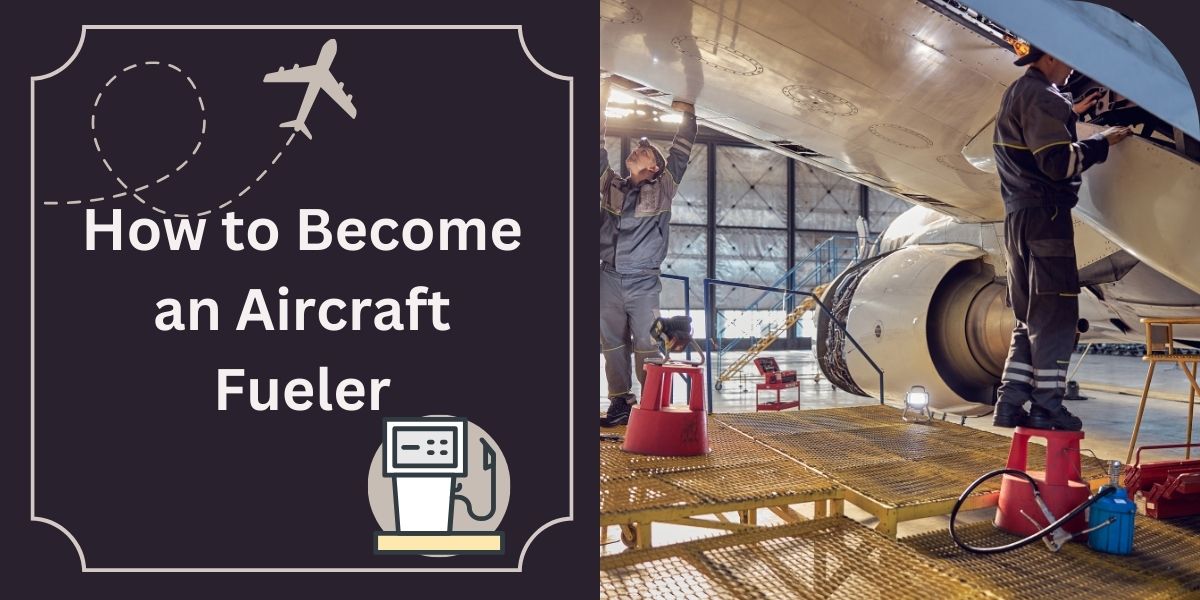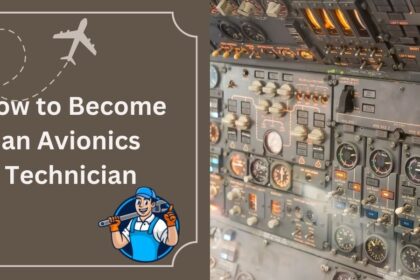Embarking on a journey to become an aircraft fueler is a gateway to a hands-on and vital role in the aviation industry. There are specific skills that many aircraft fuelers have to possess to achieve success in this field.
An ideal aircraft fueler hooks up the equipment safely, fills fuel for the wings, unhooks the machine safely, fills out the fuel transaction forms perfectly, and performs quality control on the device every day.
In this article, we will discuss how to become an aircraft fueler, your skills, and your salary.
What does an aircraft fueler do?
Aircraft fuelers’ primary role is to ensure the proper refueling of aircraft before and after a flight. The position is essential, as proper refueling determines the safety of an aircraft. An aircraft fueler manages refueling equipment, transports fuel, and ensures adherence to safety protocols.
They are also responsible for monitoring the functionality of all equipment and ordering repairs. This position requires a high level of safety consciousness.
How to Become an Aircraft Fueler
Follow these steps if you want to be an aircraft fueler:
1. Education Requirements
If you’re interested in becoming an aircraft fueler, you must consider how much education you need. Even though some aircraft fuelers have a college degree, it’s possible to become one with only a high school degree or GED.
2. Develop Specific Skills
You need some essential aircraft fueling skills before entering the job market.
3. Complete Relevant Training And Internships
Many employers offer on-the-job training for aircraft fuelers. You may need to obtain certifications related to aircraft fueling.
These certifications often involve training on safety regulations, fueling equipment operation, and emergency response procedures. Ensure you comply with industry standards and regulations relevant to your region.
4. Research Aircraft Fueler Duties And Responsibilities
Aircraft fueler duties and responsibilities are what they do on a typical day. Here is a list of the main duties and responsibilities that appear on their job listings:
- Sound knowledge of aircraft safety rules and regulations as well as the FAA’s standard guidelines.
- Train with accuracy and precision in military combat training, firearms training and safety, and fuel handling.
- Operate all aircraft fueling operations per FAA requirements and make sure aircraft have the right amount of fuel for each flight.
- Experience in the removal and application of aerospace coatings.
- Train incoming personnel on local military and firefighting standards.
- Operate firefighting vehicles and equipment during emergencies and training operations.
5. Apply For Aircraft Fueler Jobs
Now it’s time to start searching for aircraft fueler jobs. Consider the tips below for a successful job search:
- Browse job boards for relevant postings
- Consult your professional network
- Reach out to companies you’re interested in working for directly
Skills to Become an Aircraft Fueler
There are specific skills that many aircraft fuelers have to possess to achieve success in this field. They include
- Attention to detail
- Ability to lift heavy objects
- Knowledge of aviation fuel types
- Knowledge of aviation fueling regulations
- Ability to work independently
- Safety and security conscious
- Strong attention to detail
- Flexible and reliable
How Much Does an Aircraft Fueler Make?
As of January 22, 2024, the average hourly pay for an aircraft fueler in the United States is $18.12 an hour and $37,700 per year.
While ZipRecruiter is seeing hourly wages as high as $27.40 and as low as $11.54, the majority of aircraft fueler wages currently range between $15.38 (25th percentile) and $18.75 (75th percentile) across the United States.
The average pay range for aircraft fuelers varies little (about $3.37), which suggests that regardless of location, there are not many opportunities for increased pay or advancement, even with several years of experience.
Working Conditions of an Aircraft Fueler
Aircraft fuelers work outdoors in all kinds of weather with potentially hazardous aviation gasoline and kerosene.
They operate refueling trucks and pull out as much as fifty feet of 4-inch hose from the truck to the fuel panel, at which point they must lift as much as 60 pounds above their heads while standing on either a ladder or stool to couple the nozzle to the aircraft.
Once the fueling is complete, the ladder or stool must be climbed again, and the nozzle must be removed from the aircraft.
Smaller commuter aircraft can require either attaching the hose as previously described or pulling an inch and a half of the hose, climbing a ladder, and holding approximately 20 lbs of hose and nozzle while fueling takes place.
On a normal day, a fueler makes approximately 25 trips in and out of their truck. They climb ladders or stools as much as 30 times while connecting and disconnecting the nozzles from the aircraft.
Some aircraft require reaching fill points that are approximately 12 feet off the ground. Average responses to aircraft are 15 fuelings per day.
Strict safety rules must be observed on the ground, on the ramp, and while using equipment. Fuelers may also be asked to assist with ramp services and perform lavatory services for aircraft. Shift work is required, and a uniform must be worn.
Conclusion
Becoming an aircraft fueler is a journey that involves a blend of education, hands-on experience, and a commitment to safety.
The airplane fueler is responsible for refueling aircraft safely and efficiently. The role involves preparing, loading, and unloading fuel from tankers and into aircraft tanks, as well as carrying out quality assurance checks.
Networking within the aviation community, seizing opportunities for advancement, and demonstrating a commitment to safety are essential steps toward a rewarding career as an aircraft fueler.


 Jobi.ng
Jobi.ng








